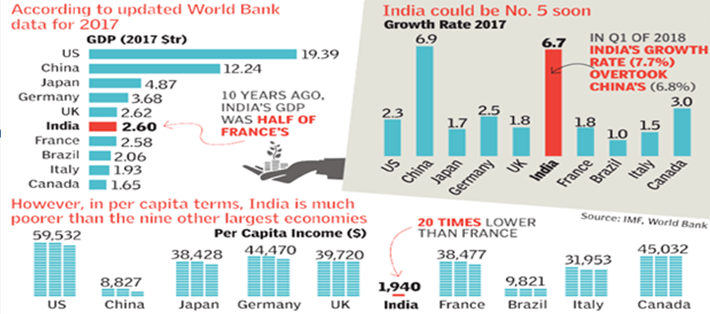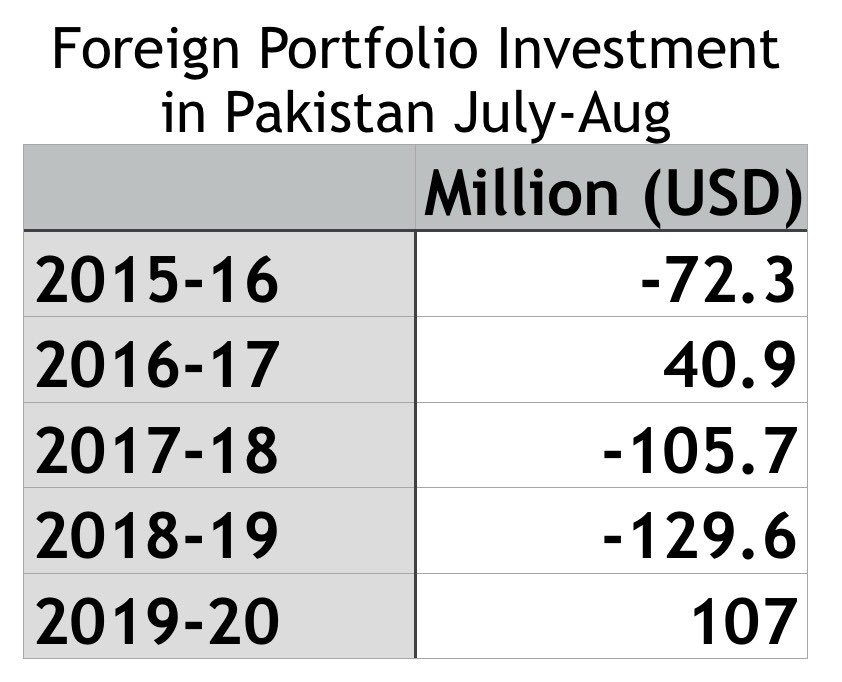Contents
Social enterprises are significant to improve the gaps in the market and support the government. The researchers have shown great interest in social enterprises to bring social change, empowerment, and economic development. The social entrepreneurship process consists of social opportunity and has an enterprise the term social entrepreneur was promoted by concept. They are the agents of change and create significant change using innovative ideas. Entrepreneurship has been the engine propelling huge growth of the business sector as well as a driving force behind the rapid expansion of the social sector as well as the commercial sector for the Indian economy.

From the 3 P’s of Triple bottom Line , there has now been a radical shift towards a deeper understanding, a move towards people, planet and prosperity. The planet, as we all know, is endowed with resources that are rapidly depleting in our quest for progress. The world is facing multifarious issues with society, e.g., climate, poverty, unemployment to name a few. Many of these have been due to apathy or failures of Corporates and Governments. The need of the hour is to look at an inclusive development, one that is driven by values, humanity and above all to think of a regenerative approach to growth. The youth of the world want to work with entrepreneurs who want to make the world a better place.
6 Types of Social Entrepreneurships
The technical storage or access that is used exclusively for anonymous statistical purposes. Without a subpoena, voluntary compliance on the part of your Internet Service Provider, or additional records from a third party, information stored or retrieved for this purpose alone cannot usually be used to identify you. This is crucial for developing countries and welfare states that are facing growing financial pressure. The issues addressed are some of the most pressing social problems like HIV and mental health issues, criminality, illiteracy, and abuse of drugs.
Within the broader field of social innovation we can discuss organizations practicing social entrepreneurship; they are typically extremely impactful as a result of their disrupting the norm and creating a brand new ‘established order’. In Finland a law was handed in 2004 that defines a social enterprise as being any kind of enterprise that is entered on the relevant register and a minimum of 30% of whose staff are disabled or lengthy-time period unemployed. As of March 2007, 91 such enterprises had been registered, the largest with 50 workers. Examples are the success of the German and Japanese economies, which have their roots in long-term relationships and the ethics of cooperation, in both essential innovation and industrial development.

The outcomes point out schooling, global publicity, prior work experience, creativity, empathy, community roots and contentment had been the primary traits of a social entrepreneur. Self-transcendence, unique ideas and innovation to unravel pain points, inspiration and personal expertise motivate a person to turn into a social entrepreneur. Findings of this study will contribute to the practical and research within the space of social entrepreneurship. Although the phrases are comparatively new, social entrepreneurs and social entrepreneurship may be found all through history. During the nineteenth and twentieth centuries some of the most successful social entrepreneurs straddled the civic, governmental and enterprise worlds.
A Social Entrepreneur thus, looks to merge a transformational approach to profit through innovative business models or simply to create new ones that look to tackle these societal issues. A deeper understanding of human culture and function of natural systems is required and needs to be fused with conventional economics. The metrics and various indices that economists put forth as a measure of growth have a myopic view, one that talks about output or production. Over a period of time, as economies started getting stressed at the seams, the concept of social responsibility and sustainability started to take centre stage.
4 Characteristics of Social Entrepreneurship
Instagram can be used to gain the necessary momentum needed to capture the attention of the market segment that has an interest in the product offering or services. As Instagram is supported by Apple and android system, it can be easily accessed by smart phone users. Thus, the marketers see it as a potential platform to expand their brands exposure to the public, especially the younger target group. The concept of “social entrepreneurship” is not a novel idea, but in the 2000s, it has become more popular among society and academic research, notably after the publication of “The Rise of the Social Entrepreneur” by Charles Leadbeater.
- Social entrepreneurship in trendy society offers an altruistic form of entrepreneurship that focuses on the benefits that society could reap.
- A curated blog by myHQ coworking workspaces to give you an insight into the dynamic arena of entrepreneurship, digital marketing and freelancing as we become the flag bearers of the new age coworking and independent lifestyle.
- Hollender was pushed out of his position at Seventh Generation in 2010, but that does not mean he’s slowed down in social entrepreneurship.
- Facebook has never released statistics based on the like rate and certain time frames.
This may also assist in identifying what more resources and support methods are required to make the venture extra profitable and efficient. Some businesses founded to each generate revenue and have an effect on some type of change for the great of the general public or a particular group of individuals in need of assistance. An group that strives to strike a perfect steadiness between for-profit organizations and non-profit programs is known as a social function enterprise. Unlike the standard entrepreneurship framework, social entrepreneurship can involve a group of people working together with the same intention of bringing a change to society. Hence, the decision-making, execution of tasks, etc. are all shared and are done with the active participation of all experts at different levels. Social companies develop and implement innovation crucial to economic and social development, and create new products and services.
4 Essentials for Netpreneurship/Social Media Marketing
Many are nurturing a cadre of leaders with the experiences and skills wanted to enhance the region’s world competitiveness while additionally reaching social targets. The social entrepreneurs address global problems such as poverty, unemployment, gender inequality, inadequate education and health facilities and policies, inefficient governance and so on. They create a global platform for like minded people who work as team to fight these issues. Its members, primarily based in Metro Manila, include entrepreneurs, executives, and teachers who consider in social entrepreneurship . SEN served is a networking opportunity for like-minded people to share their pursuits and pass on their expertise to others.
Instagram has an interaction rate of 1.46% with an average of 130 million users monthly as opposed to Twitter which has a .03% interaction rate with an average of 210 million monthly users. Constant Innovation – Today, getting the product to market is only the start of the journey. The competition’s unrelenting force and the market’s demand for improvement makes it imperative that businesses focus on innovation. In this concept, People, not Technologies, are the most valuable business assets.
Other Google products are also integrated, such as Google Adwords and Google Maps. With the development of Google Personalized Search and other location-based search services, Google+ allows for targeted advertising methods, navigation services, and other forms of location-based marketing and promotion. Tracking Competitors – It is important to keep an eye on competitors as they can provide valuable data for industry-related links, and other social media marketing insight. If competitors are using a certain social media marketing technique that seems to be working for them, the same can be adopted. Planning – As discussed previously, building a social media marketing, plan is essential for creating interest in target audience.

The social entrepreneurs address international issues similar to poverty, unemployment, gender inequality, inadequate schooling and health facilities and insurance policies, inefficient governance and so forth. They create a world platform for like minded individuals who work as staff to struggle these issues. They have an urge to take constructive steps to resolve these points by the use of social action and resource development.
Both private and public companies worldwide have had billion-dollar initiatives to empower disadvantaged communities and individuals. Their purpose is to determine and create environment friendly change makers or position fashions, who will in turn encourage the lots to develop their very own ideas, solutions and methods to resolve these social points. In brief a social entrepreneur is an agent or mediator who thrives to bring about optimistic change https://1investing.in/ within the society. Many actions related to neighborhood growth and higher social function fall within the modern definition of social entrepreneurship. Despite the established definition nowadays, social entrepreneurship remains a difficult concept to outline, since it could be manifested in multiple forms. A broad definition of the idea permits interdisciplinary analysis efforts to understand and problem the notions behind social entrepreneurship.
Below are a Few Examples of Leading Social Entrepreneurs
They are both visionaries and ultimate realists, concerned with the practical implementation of their vision. Each social entrepreneur presents ideas that are user-friendly, understandable, ethical, and generate widespread support. They prove that citizens who channel their passion into action can do almost anything. A social entrepreneur is a person who establishes an enterprise with the aim of solving social problems or effecting social change.
2 Pre-requisites for being a successful Netpreneur
Social entrepreneurship usually takes place within the non-profit sector, with a concentrate on creating and implementing new options. There are many environmental and social problems out there and social entrepreneurs identify those problems and come up with innovative ways, and establish or adopt a business model around it. By presenting user-friendly and adaptable ideas to the local people, social entrepreneurs are generally looked up to as leaders or role models for driving philanthropic projects and bringing a large group of people to believe in their initiative.
Of all the kinds that social entrepreneurs can be found, in choosing suppliers, market influencers are likely to choose financial rather than environmental or social values. There is consensus about the idea that social entrepreneurs and their businesses are motivated by social objectives, i.e., the need to improve society in a way that benefits society in some way. The concept of social venture, social enterprise, and social entrepreneurs are not as clear words, as evidenced by the existing literature. The three components, i.e., market orientation, sociality, and innovation, define various concepts in the social entrepreneurship field. For instance, traditional economics looks at natural resources as assets to the extent that they are traded on a market and command a value.
It includes social capital (usually defined to be “the resources which are linked to possession of a durable network of relationships of mutual acquaintance and recognition”). Social entrepreneurship has evolved over the years and has given innovative and profitable ideas that address social problems. With more ideas being incubated and funds flowing into social enterprise, the subcontinent, which already has successful examples such as Amul, Barefoot College, Grameen Bank, etc., has the ability to create many more socially relevant enterprises. The study of social entrepreneurship shows that there is not much theoretical advancement in this area. There are immense opportunities to extend existing theoretical lenses and develop new models and frameworks for analysis that facilitate future research. The social entrepreneurship is silent support to the Society and businesses in many countries in the world.


